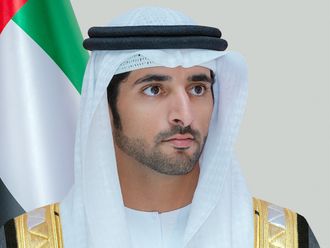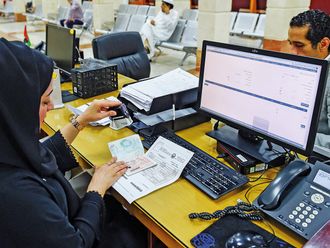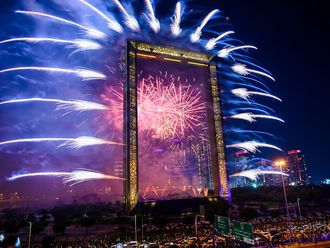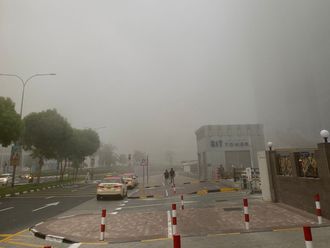Abu Dhabi: The UAE and Morocco on Tuesday reiterated their commitment and keenness on strengthening bilateral relations and taking them to greater heights that lead to a strategic partnership in various fields.
This came in a joint communique that was issued after talks that were held by Shaikh Abdullah Bin Zayed Al Nahyan, Foreign Minister, and his Moroccan counterpart Salaheddine Mezouar, Minister of Foreign Affairs and Cooperation, in the Moroccan city of Fes.
The two countries are satisfied with the progress achieved in development projects and agreements that were signed in March during the visit by His Highness General Shaikh Mohammad Bin Zayed Al Nahyan, Abu Dhabi Crown Prince and Deputy Supreme Commander of the UAE Armed Forces.
Shaikh Abdullah and Mezouar discussed the overall developments in the Arab, regional and international arenas and exchanged views on a number of issues of mutual interest. They also confirmed the importance of exerting all possible efforts to bring peace, security and stability to the region.
On the Western Sahara, the UAE reiterated its supportive stance for the efforts being exerted by Morocco to maintain its territorial integrity as well as for supporting its serious and credible self-rule initiative as a key foundation for a solution the regional conflict over the Western Sahara.
On the Iranian occupation of the UAE’s three islands, Morocco reaffirmed its support to the UAE’s right to regain its sovereignty over its three islands, Greater Tunb, Lesser Tunb and Abu Mousa. It also supports all the procedures and peaceful means taken by the UAE to retrieve its sovereignty over the three islands.
The two sides highlighted the historical relations between Morocco and the GCC countries.
On Palestine, the UAE and Morocco voiced their deep concern over the escalating violence and tension in the Occupied Territories as a result of Israel’s provocative practices and the continuous heinous violations committed by Israeli forces at Al Aqsa Mosque in occupied Jerusalem.
The UAE praised the role by the Jerusalem Committee chaired by King Mohammad VI.
On Libya, the two countries welcomed the agreements which resulted from the rounds of negotiations between Libyan rivals that were hosted by Morocco.
They expressed that they understand the position of the Libyan House of Representatives regarding its request to extend the transition period to avoid any constitutional vacuum in Libya.
On Yemen, they reaffirmed that Operation Restoring Hope was launched for the purpose of defending legitimacy in Yemen and ensuring security and stability in the region.
The two ministers underlined that the solution of the Syrian crisis lies in the hands of the Syrian people and enabling it to lead the political transitional period in compliance with regulations stipulated in the statement of the Geneva 1 conference.












